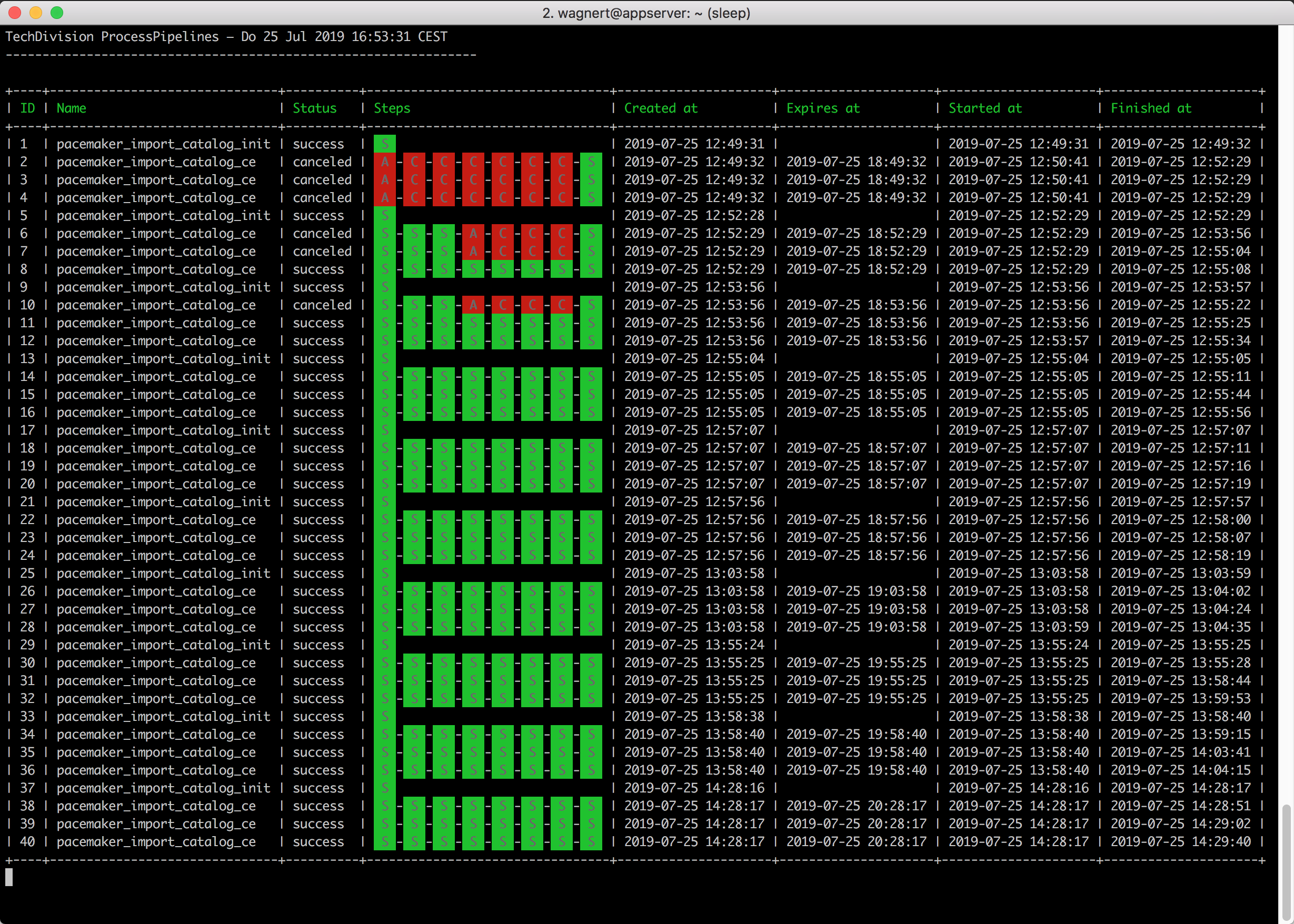Predefined import jobs
Pacemaker provides predefined import jobs ready to use out of the box.
-
Sample import files (CSV) are included in the installed composer packages
- By importing sample import files, you will import the Magento sample data, like they would get created by running the following command:
<PATH_TO_MAGENTO_ROOT>/vendor/bin/import-simple sampledata:deployCopy the sample files to the monitored import directory
Copy all sample files into the import directory, Pacemaker will then automatically initialize the import process pipelines for each CSV files import bundle.
-
Catalog import bundle (attributes, categories, products)
Sample data set 1
The first sample data set contains all imports (attribute sets, attributes, categories, and products) bundled in multiple bundles.
Sample data set 2
Example
- The following sample data set includes only category imports, bundled into two bunches:
cp -R vendor/techdivision/pacemaker-import-catalog/sample-data/bunch2/* var/pacemaker/import-
Price import / inventory (stock) import
The sample data for the price and inventory import include only one import file.
|
It is also possible to split these imports into multiple files and optionally group them into multiple bundles into several bundles, as it gets processed for the catalog import. |
- Use the following command for the price import:
cp -R vendor/techdivision/pacemaker-import-price/sample-data/bunch1/* var/pacemaker/import- Use the following command for inventory (stock) import:
cp -R vendor/techdivision/pacemaker-import-inventory/sample-data/bunch1/* var/pacemaker/import|
After copying the import files into the target directory, you can observe the process by executing
the Alternatively, login into the backend (Magento’s admin UI) and open the Grid. 
Result output for
bin/magento pipeline:status |